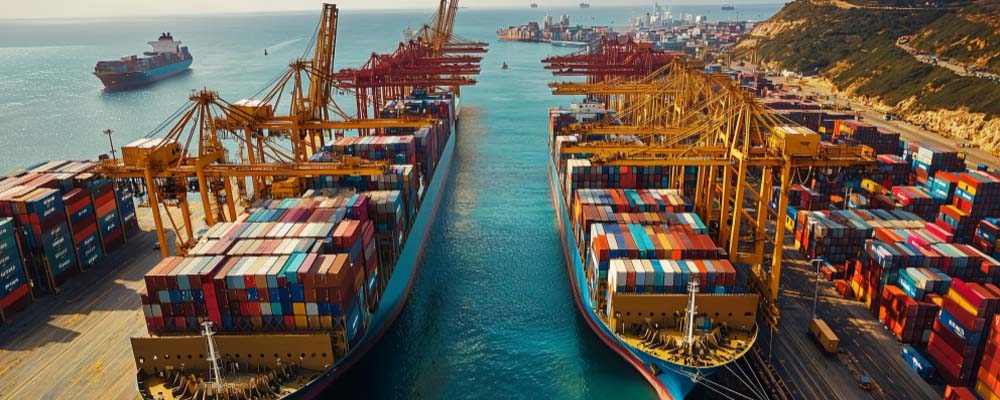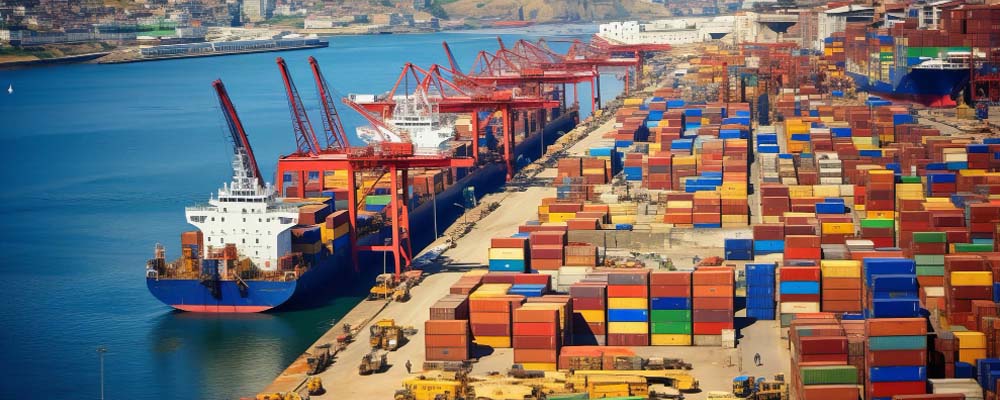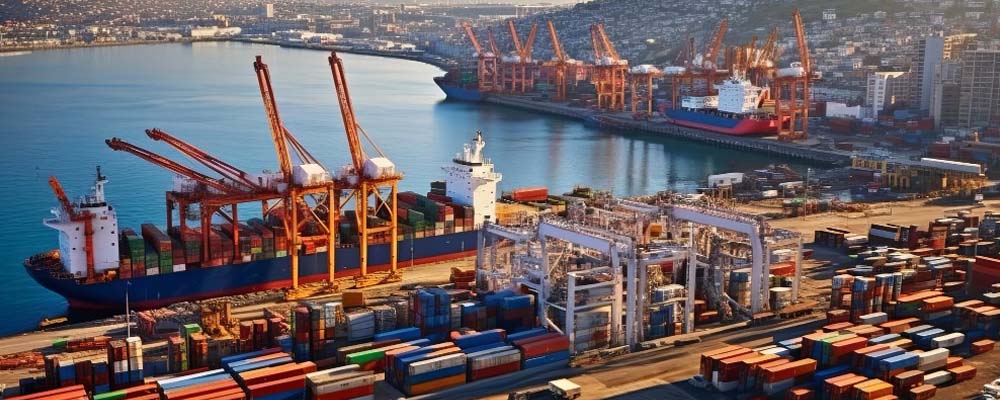
Chile, with its extensive coastline and strategic location along the Pacific Ocean, is a crucial hub for international trade in South America. For freight forwarding companies, logistics providers, importers and exporters, and industry professionals, understanding the major ports in Chile can significantly enhance operational efficiency and decision-making. This blog post will guide you through the top 5 major ports in Chile, their unique advantages, and how you can leverage these ports for your business needs.
Top 5 Major Ports in Chile
1. Port of San Antonio
Overview
The Port of San Antonio ranks among the busiest and most significant ports in Chile. Located in the Valparaíso Region, it handles a vast array of cargo ranging from containers to bulk goods. Its strategic position makes it a primary gateway for imports and exports.
Facilities and Infrastructure
San Antonio boasts state-of-the-art facilities, including modern container terminals, ample storage areas, and advanced cargo handling equipment. These features ensure efficient and swift cargo operations, minimizing delays and optimizing throughput.
Economic Significance
As Chile’s largest port in terms of cargo volume, San Antonio plays a pivotal role in the nation’s economy. It facilitates the smooth flow of goods to and from major international markets, supporting various industries from agriculture to manufacturing.
2. Port of Valparaíso
Historical Significance
The Port of Valparaíso is steeped in history, serving as a crucial maritime hub since the 16th century. Its rich heritage and strategic location have cemented its importance in international trade.
Modern Capabilities
Today, Valparaíso features cutting-edge technology and infrastructure. Its container terminals handle large-scale operations efficiently, attracting many logistics providers and shipping companies.
Connectivity
Valparaíso enjoys excellent connectivity to major road and rail networks, facilitating seamless inland transportation. This connectivity is vital for efficient distribution and logistics operations, enabling timely delivery of goods.
 3. Port of Iquique
3. Port of Iquique
Strategic Location
Situated in the northern part of Chile, the Port of Iquique serves as a gateway to the Atacama Desert and neighboring countries like Bolivia and Peru. Its strategic location positions it as a crucial hub for regional trade.
Specialized Facilities
Iquique is renowned for its specialized facilities catering to various types of cargo, including minerals and automotive products. The port’s infrastructure supports efficient handling of these goods, ensuring quick turnaround times.
Economic Impact
The port significantly contributes to the local economy, providing employment opportunities and supporting industries such as mining and manufacturing. Its role in facilitating trade underscores its economic importance.
4. Port of Antofagasta
Mining Hub
The Port of Antofagasta is intrinsically linked to Chile’s mining industry. Located in the Antofagasta Region, it serves as a vital export point for minerals, particularly copper, which is a major export product for Chile.
Advanced Infrastructure
Antofagasta is equipped with advanced infrastructure, including bulk terminals and storage facilities. These features are essential for handling large volumes of mining products efficiently and safely.
Trade Gateway
The port acts as a gateway for international trade, connecting Chilean minerals to global markets. This role is critical in sustaining the country’s economic growth and its position in the global mineral market.
 5. Port of Arica
5. Port of Arica
Geographic Advantage
Located in the northernmost part of Chile, the Port of Arica enjoys a strategic geographic advantage. It serves as a key transit point for goods heading to and from Bolivia and other landlocked regions.
Efficient Operations
Arica is known for its efficient port operations, supported by modern facilities and technology. The port’s ability to handle diverse cargo types, including containers and bulk goods, enhances its operational versatility.
Economic Contributions
The port significantly contributes to the regional economy by supporting trade and providing employment opportunities. Its role in facilitating cross-border trade is pivotal for regional economic integration.
Benefits of Utilizing Chile’s Ports
Strategic Location
Chile’s ports are strategically positioned along major international shipping routes, providing easy access to global markets. This geographical advantage shortens transit times and lowers shipping costs.
Advanced Infrastructure
The ports in Chile boast advanced infrastructure and facilities designed to handle various types of cargo efficiently. This includes modern container terminals, bulk storage facilities, and specialized equipment.
Economic Efficiency
Utilizing Chile’s ports can enhance economic efficiency by streamlining logistics operations and reducing operational costs. The ports’ capabilities ensure quick turnaround times and minimize delays.
Logistics Tips for Using Chile’s Ports
Plan Ahead
Efficient logistics planning is crucial for smooth port operations. Ensure that all necessary documentation and permits are in order well in advance to avoid any delays or complications.
Leverage Technology
Utilize advanced logistics technologies such as tracking systems and automated cargo handling solutions. These technologies can enhance operational efficiency and provide real-time visibility into cargo movements.
Collaborate with Local Experts
Partnering with local logistics providers and customs brokers can facilitate smoother operations. Their expertise in local regulations and procedures can help navigate any complexities involved in port operations.
 FAQs About Ports in Chile
FAQs About Ports in Chile
What are the main types of cargo handled by Chile’s ports?
Chile’s ports handle a wide range of cargo, including containers, bulk goods, minerals, automotive products, and agricultural produce. The ports are equipped with specialized facilities to cater to different cargo types.
How can businesses benefit from using Chile’s ports?
Businesses can benefit from using Chile’s ports through reduced transit times, lower shipping costs, and access to advanced infrastructure. The strategic location of the ports also provides easy access to international markets.
Are there any specific regulations for using Chile’s ports?
Yes, there are specific regulations governing port operations in Chile. Collaborate with local customs brokers and logistics providers who are well-versed in these regulations to ensure compliance and maintain smooth operations.
Conclusion
Chile’s major ports drive international trade, providing advanced infrastructure, strategic locations, and efficient operations. By understanding the unique advantages of each port, freight forwarding companies, logistics providers, and other industry professionals can optimize their operations and enhance their competitive edge. Whether you are importing, exporting, or managing logistics, leveraging Chile’s ports can significantly benefit your business.
Explore the potential of Chile’s ports and enhance your freight operations today!




 3. Port of Iquique
3. Port of Iquique 5. Port of Arica
5. Port of Arica FAQs About Ports in Chile
FAQs About Ports in Chile



